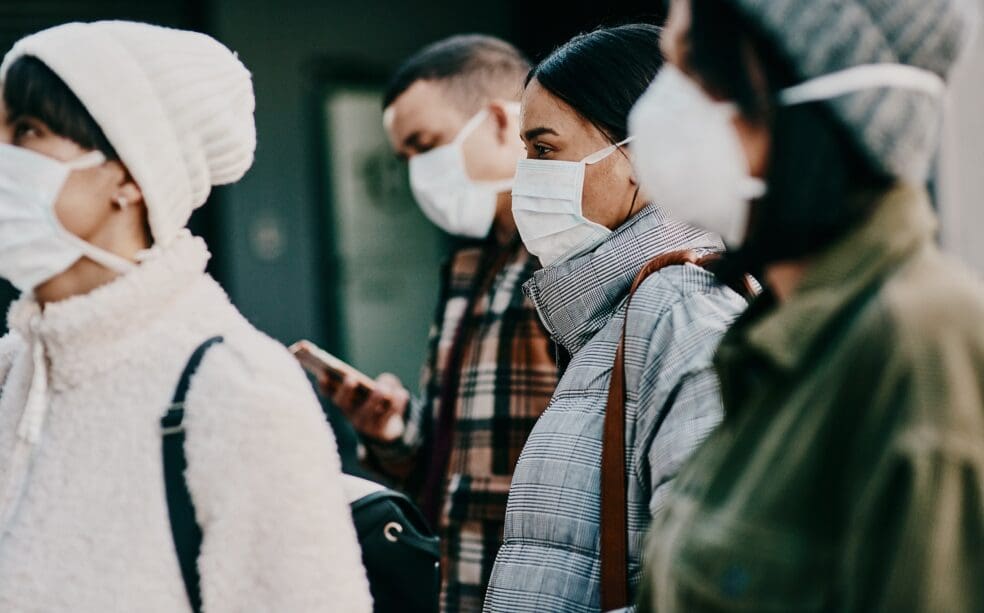Today, the United Nations Development Programme (UNDP) and Constella Intelligence published a new joint report highlighting the public health and social challenges that COVID-19 misinformation has caused in Latin America and the Caribbean—signaling how the massive influx of digital conversations related to COVID-19 has hindered the effectiveness of public health responses and undermined social cohesion and political stability around the world. Leveraging Constella’s proprietary, cloud-based platform for advanced analysis of the digital public sphere, Analyzer, the report assesses the scale and dynamics of “information pollution” (false, manipulated, and misleading information produced and transmitted with or without a harmful intent). The research analyzed over 37 million posts from Twitter, Facebook, YouTube, Instagram, media domains, blogs, forums, and other public digital communities in English and Spanish geolocated in Latin America and the Caribbean. The study identified key communities of opinion, principal narratives across the broader debate, the role and influence of mainstream and alternative media in the digital conversation, and cross-border flows of critical public health narratives.
Constella Intelligence is proud to partner with UNDP, a United Nations organization tasked with helping countries eliminate poverty and achieve sustainable economic growth and human development. UNDP partners with people at all levels of society to help build nations that can withstand crises and drive and sustain the kind of growth that improves the quality of life for everyone.
Key insights uncovered related to the diffusion of “information pollution” in LATAM and the Caribbean
This report offers critical insights into digital media trends, identifying vulnerabilities and helping to inform strategies to counter the harmful effects of online information pollution. The research uncovered the geographic origins of information pollution, details on how false content can spread within and across borders, and the types of narratives that attract the most attention.
1. Half a million pieces of online content about COVID-19 vaccines in Latin America prove to be information pollution. Less than 1% of users contributing to information pollution produced nearly 25% of information pollution conversations.
2. A significant amount of information pollution is created by repackaging, reframing, and reproducing out-of-context content produced by mainstream media. The research also identified several websites that were established with the primary purpose of generating disinformation.
3. Some of the most common information pollution narratives – accounting for approximately 40 percent of the “polluted” content reviewed” – discuss claims of the side effects of vaccines and the perceived benefits of alternative COVID-19 treatments.
4. Other narratives revolve around claims and fears by mask use and a rejection of social distancing as an effective form of prevention. This content has significantly undermined the response by encouraging disregard of proven public health measures and jeopardizing efforts to control the pandemic.
The research conducted by Constella and the UNDP is a great example of the importance of public-private collaborations delivering insights into global and local trends emerging from the digital public sphere. Amidst the Ukraine crisis, we can expect to see similar trends in misinformation and disinformation campaigns that will spread like wildfire to other countries and languages. Collaboration between the private and public sectors is essential to halting the spread of multi-language information pollution. COVID-19 is just the tip of the iceberg.
Joint conclusions and recommendations from Constella and the UNDP for addressing the challenges of “information pollution”
- 1. Counteracting information pollution will require context-specific and multi-pronged strategies. The development of effective social listening and information pollution detection systems will be a key first step.
- 2. Information pollution spreads like wildfire, and English-language content moderation is only one piece of the puzzle. More comprehensive efforts need to be made on tracing multi-language information pollution to limit disinforming narratives, public distrust, and paranoia related to public health.
- 3. Algorithmic transparency and regulation of how information travels across social media platforms and associated channels are becoming an urgent issue that cannot be tackled at the country level alone. Advocating for a global alliance of governments and other stakeholders to work together on social media regulation is a priority, especially in the face of the growing number of competing platforms and the inadequacies of self-regulation. Care will be needed to ensure rights such as privacy and freedom of expression are protected while online safety and action to tackle public harm are assured.
- 4. Greater transparency of public action, active media engagement, the strengthening of information verification capacities, and community participation are also required to tackle this issue and build resilience to future information pollution crises.
- 5. Government agencies, media, social media companies, civil society, religious and community leaders, as well as influencers such as personalities from sports and entertainment, are key actors to amplify evidence-based and responsible messages to mitigate information pollution.
Read the full report here to learn how information pollution related to the COVID-19 pandemic has impacted the digital conversation in Latin America and the Caribbean.
Trends related to misinformation, disinformation, information pollution, and harmful or erroneous narratives emerging in the digital sphere do not exist in isolation. Visit the Constella Intelligence Ukraine microsite to stay updated on our dedicated research and insights related to information operations and new tactics, techniques, and procedures that our team is monitoring across the public digital sphere as well as the deep and dark web specifically related to threat actors and the Ukraine crisis.







